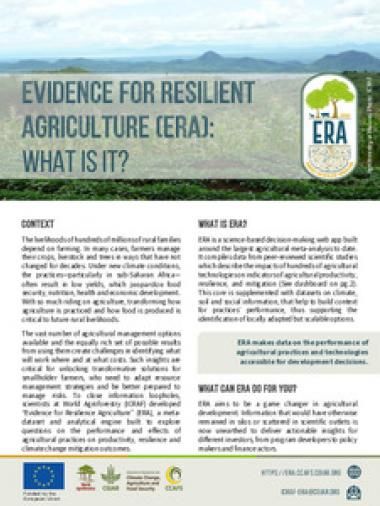Evidence for Resilient Agriculture (ERA): What is it?

The livelihoods of hundreds of millions of rural families depend on farming. In many cases, farmers manage their crops, livestock and trees in ways that have not changed for decades. Under new climate conditions, the practices—particularly in sub-Saharan Africa— often result in low yields, which jeopardize food security, nutrition, health and economic development. With so much riding on agriculture, transforming how agriculture is practiced and how food is produced is critical to future rural livelihoods. The vast number of agricultural management options available and the equally rich set of possible results from using them create challenges in identifying what will work where and at what costs. Such insights are critical for unlocking transformative solutions for smallholder farmers, who need to adapt resource management strategies and be better prepared to manage risks. To close information loopholes, scientists at World Agroforestry (ICRAF) developed “Evidence for Resilience Agriculture” (ERA), a metadataset and analytical engine built to explore questions on the performance and effects of agricultural practices on productivity, resilience and climate change mitigation outcomes.
Citation
Nowak A, Rosenstock T. 2020. Evidence for Resilient Agriculture (ERA): What is it?. CGIAR Research Program on Climate Change, Agriculture and Food Security (CCAFS).